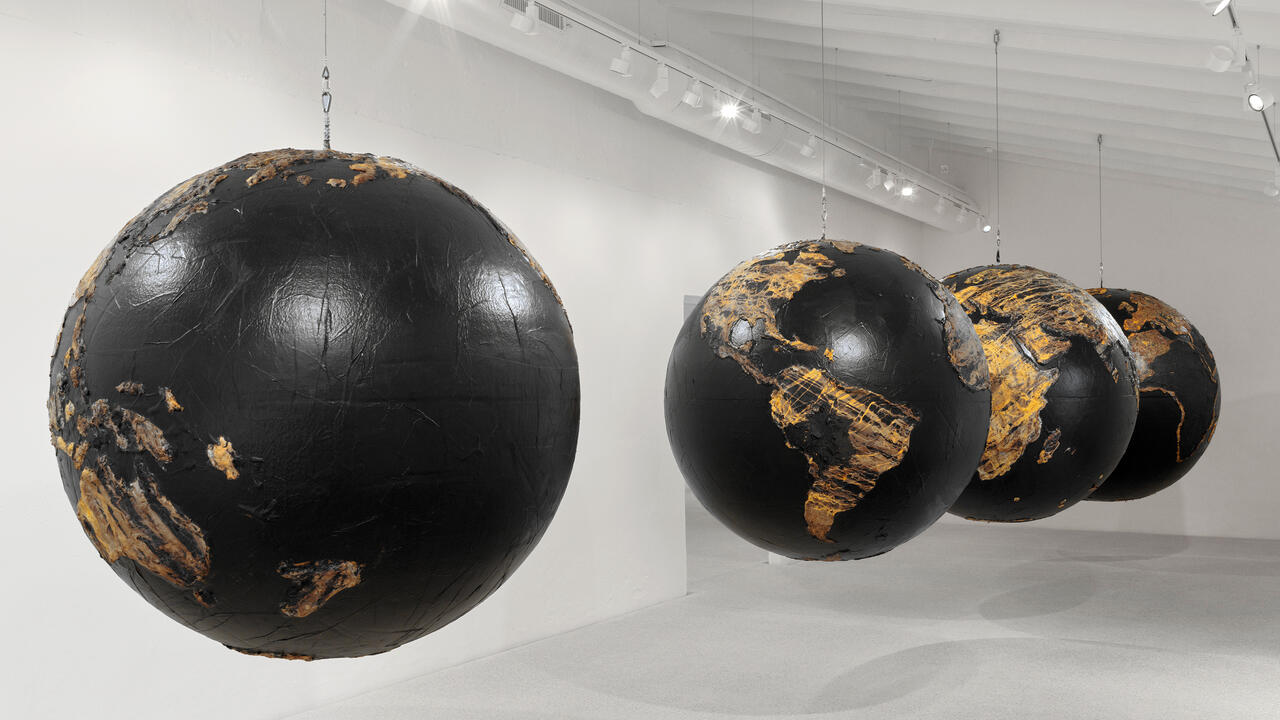The Girl with No Door on Her Mouth: Lúa Coderch's Acts of Making Noise
The artist explores the politics of the female voice that speaks out, or is shut up, at àngels barcelona, Spain
The artist explores the politics of the female voice that speaks out, or is shut up, at àngels barcelona, Spain

Lúa Coderch’s ‘The Girl with No Door on Her Mouth’ takes its title from Sophocles’s play Philoctetes (409 BCE). In the play, that phrase is a sobriquet used by the chorus of sailors to shame the mythological nymph Echo. The exhibition problematizes the intimate anatomy of making noise, the sense and sincerity of verbal expression and the female voice that speaks out, or is shut up.
Two images of plants, mounted behind grey-tinted glass, are part of Coderch’s larger series ‘Sore Throat’ (2018). We learn that the specimens of this photographic herbarium represent botanical remedies for ailments of the mouth and throat. Each is accompanied by textual inscriptions: shop-worn sentiments that strain good faith or a repertoire of break-up lines, such as ‘You deserve better’ and ‘Things are going too fast’. Phrases, like Echo herself, that are condemned to heart-breaking repetition. In the rear gallery at àngels barcelona, a low platform surrounded by flesh-coloured curtains serves as a stage for listening to spoken-word tracks on vinyl records. One record is a compilation of dozens of break-up lines (We Can Still Be Friends, 2014–8). In another, Coderch recites tips for removing stains from fabric in a manner that evokes both the domestic work of a 1950s housewife and the ‘Out, damned spot!’ of Lady Macbeth.

Pillows scattered on the platform are patterned with a tie-dye technique that brings to mind 1960s psychedelia, though in the muted tones of tinctures and cosmetics. Each Cojín (Cushion, 2018) bears a line from the 1962 Sylvia Plath poem ‘The Courage of Shutting-Up’, in which the poet’s appalled withholding of speech becomes an avenging act following infidelity. In Plath’s lines, the grooves of a record are ‘disks of outrage’; the tongue, a needle. Yet Coderch’s cushions are equivocal: the poet’s meticulous stanzas are dismembered, literally to be sat on.
We might imagine the garrulous Not I (2018) as the B-side of Plath’s tongue biting. This 20-minute video loop is an ingenious pivot on Samuel Beckett’s 1972 play of the same title; a two-word denial that is, glaringly, the obverse of #MeToo. Beckett’s work is an astonishing deluge of traumatic dialogue for a spot-lit rictus: notoriously punishing to memorize for its solo female role Mouth, and an ordeal to execute. Coderch’s original script is performed by the isolated lips of collaborator Ikram Bouloum, with the artist’s voice dubbed in. A sequence of contemporary parables are incessantly described and melt into each other: a radio presenter loses their voice, an academic’s tongue swells inexplicably and an intern is embarrassed by their boss.

If the story of Harvey Weinstein’s sexual abuse had never broken, or the collective La Caja de Pandora had yet to be established, one might perceive Coderch’s exhibition with somewhat different eyes – or rather, different ears. (La Caja de Pandora was founded in Spain following sexual assault allegations made by artist Carmen Tomé, a few months before the Weinstein revelations.) Yet it is a testament to the scope and agility of Coderch’s practice – and to the pervasiveness of patriarchal censure entrained by ancient Greece – that the sculpture that sends you on your way stands for all that was somehow unspeakable before, without losing any of its raucous absurdity. Tubo (Tube, 2018) is one of three sculptural instruments assembled from plumbing parts, beige metal tubing and mouthpieces from party horns (the latter are tellingly known as matasuegras: ‘mother-in-law killers’ in Spanish). Activated by a vacuum cleaner set to blow, it makes a penetrating synthetic exclamation – krriieeeeeeeeek! Like a jugaad acoustic weapon, it fires sound for all the ‘nasty women’ of classical literature up to the present cultural watershed – part war cry, shriek and lament.
'Lúa Coderch: The Girl with No Door on Her Mouth' runs at àngels barcelona until 30 March.
Main image: Lúa Coderch, Not I, 2018, video still, mono-channel digital colour video with sound. Courtesy: the artist and àngels barcelona
























